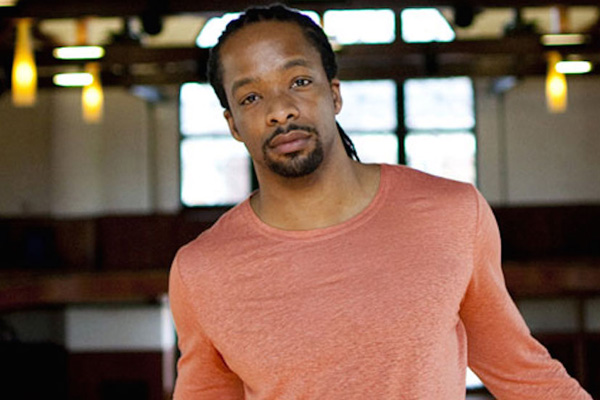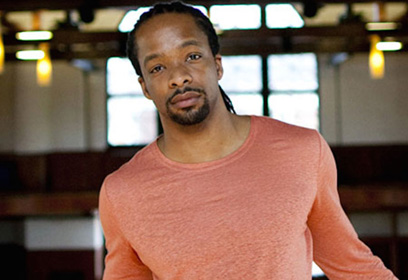
Photograph: Emory University
In the church where I was raised, adults made a sharp distinction between joy and happiness. Happiness felt good, but it was temporary, and because it was temporary, there was something about it not to be trusted. Happiness, therefore, had a relationship: with easy money so often lost as soon as it was pocketed, or with the applause that comes at the end of a song, or with the entanglements of sex and orgasm.
Joy, on the other hand, was a deeper and long-lasting feeling. Other than God, joy had no traceable root because it made no logical sense. Supposedly, you could lose your entire family in a house fire and still have joy. You could wonder if the next meal would ever materialize but still feel joy. And quite conversely, you could win the lottery understanding that the money was only money; it might change your life, giving you more in this realm for which to be grateful, but it had nothing to do with your sense of joy. Joy, as it was explained to me, is a spiritual thing.
This joy I have, the world didn’t give it to me.This joy I have, the world didn’t give it to me.This joy I have, the world didn’t give it to me.The world didn’t give it; the world can’t take it away.
It seemed quite convenient that the people of that church had this particular conception of joy. We were black, southern, and working class (or out of work). A vast majority of us were descendants of slaves who—in one of their several improvisational tactics for survival—had decided that the riches awaiting them in heaven made the attainment of comfort on earth seem silly. I’m not sure how my ancestors did anything they did without killing themselves, but I can’t deny their connection to some supernatural force that propelled them forward, a force that often led to them thinking about me and my ability to thrive long before I was born.
I hate the idea that black joy only exists as a defiant response to oppression from white people.
Still though, one of the 763 reasons I stopped going to that church is that there was always shame involved with sadness. I really do hate the idea that black joy itself is a joy derived in spite of. While it may indeed include that, limiting it to such assumes that joy among black people only exists as a defiant response to oppression from white people. I’d rather believe that black folk are capable of this deep supernatural sense without having to be enslaved or disenfranchised. Whether or not Sethe in Toni Morrison’s Beloved had been a slave, she still would have “a few yellow flowers on the table, some myrtle tied around the handle of the flatiron holding the door open for a breeze.” In literature, black people don’t need white people to enjoy the scent of the earth. In life, black people don’t need the government-sanctioned murder of another unarmed person killed by police in order for us to gather and sing in the streets. In my poems, I don’t need the face of another mother crying on the news in order for me to have subject matter or content.
I know that how we handle an adverse situation is the key to overcoming the adversity. At the same time, though, I know that we cannot truly understand and make use of an emotion if we do not allow ourselves to fully feel and find an outlet for that emotion. To this day, I worry about how much of the rage I sublimated in my childhood still lingers. Is there time I spent trying to access joy when I should have been wailing or, at least, punching a pillow?
I probably turned to poetry because it allowed for a complexity of idea and feeling that I thought religion asked me to avoid. In “Tradition and the Individual Talent,” Eliot says, “the more perfect the artist, the more completely separate in him will be the man who suffers and the mind which creates; the more perfectly will the mind digest and transmute the passions which are its material.” This is what we mean when we talk about loving the writing process. It is offensive to say and impossible to explain, but somehow in the act of writing, the tree, the shoestring, the molestation, the mother, the beating, the burial, and the music all become the same. Each item of one’s life—from experience or from imagination—merges until anything becomes material we can use to make the gorgeous and enduring thing. The only joy I have had in writing about domestic violence is the opportunity to re-envision and reform memories that otherwise leave me inoperable and in tears. Writing the poem is how we face the terror while working to separate ourselves from that same terror.
I love writing because it is the moment at which I am at once both completely present (paying close attention to my own thinking) and completely absent (as the language for that thinking flows through me). I don’t think about competition or rejection while I’m writing because I can’t remember that I’m in the present tense or that there is a future. If I think about any other poet at all, it is because I’m trying to make use of a strategy I’ve learned from his or her poems, that strategy being yet another part of my reading experience I get to use as material.
The hardest part isn’t writing the poem. We have no choice but to experience joy in that moment. The difficulty of the poet’s life is how to look forward to the next poem—how to know that another one is indeed on the way. I have written before about how purposeless and useless I feel as a human being when I find myself in the middle of a long distance between poems. How, then, do I go on the journey toward new work without living a life mired in self-pity?
Here is my trick:
When I’m talking to my students or my friends about the poems that are their greatest successes, I ask them what it felt like while they were writing the poem. It is impossible for us to be consumed by the so-called competitive nature of our art when we are finding ways to be happy for our comrades. This is a spiritual exercise. Hearing someone explain how they came to a line, how they thought to make a leap, requires humility and intimacy. I believe the conversation about writing leads to writing, leads to joy. When I invite another to articulate her writing process, I invite her to relive that joy. Doing so allows me the chance to know and make myself open to new alternatives for making the mystery happen. I can move toward the next poem with a sense of knowing because I have something entirely new to be surprised by. How will what Ellen said when we last talked about her work manifest itself in my work? How will Mark’s excitement about rhyming “lording” with “morbid” change what I make of rhyme when I am again at the writing table?
If joy is deeper than happiness, if it lasts longer, it does so because it knows that—good or bad—underneath that which is now is something more expansive, something constant. If we do not feel it in the present moment, then someone else must. Our job is to gain access to that encouragement by encouraging, to change our proximity to that someone else.
Our greatest strength is indeed our sense of community. Can we keep our communities, our conversations, safe? Through finding one another, don’t we end up back at ourselves, back at our work? And isn’t that the work of singing and of praising?
This joy I have, the world didn’t give it to me.This joy I have, the world didn’t give it to me.This joy I have, the world didn’t give it to me.The world didn’t give it; the world can’t take it away.







